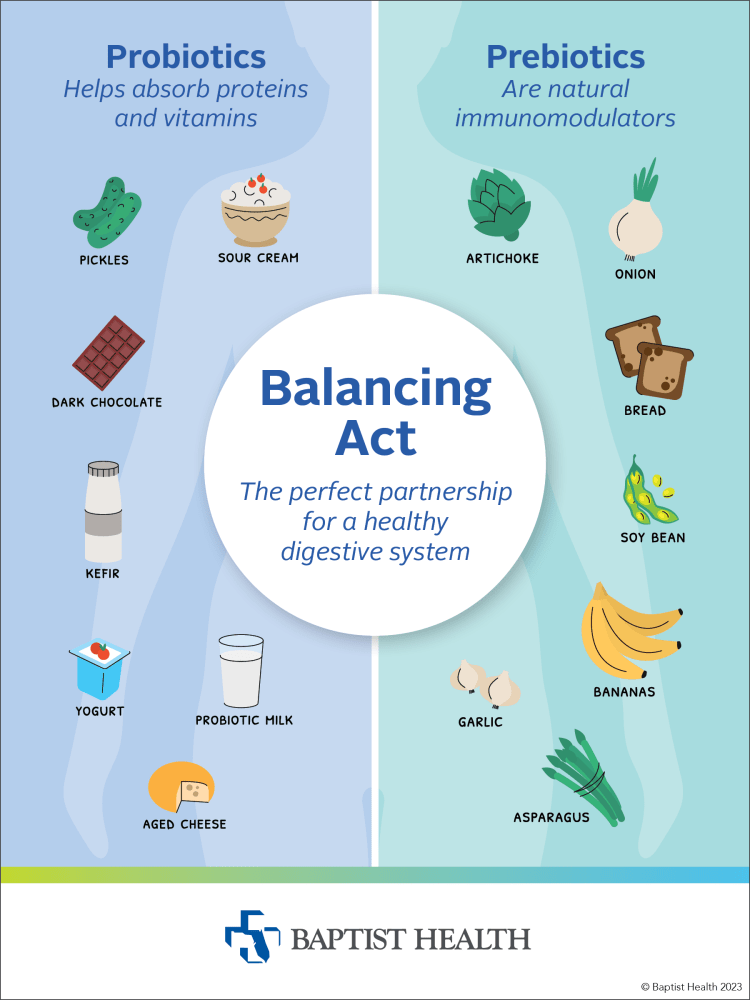Dynamic duo
Probiotics, prebiotics and your gut health.

Probiotics and prebiotics: while their names are only separated by one letter, their roles in your digestive health are quite distinct. Do you know the difference?
Probiotics are “good” live bacteria and yeasts that help keep your digestive system healthy by balancing the gut microbiota, or system of microorganisms in the gastrointestinal. The colony of microorganisms in the body is essential in maintaining physiological processes, most notably the conversion of food to essential nutrients and transport of nutrients in the body.
Prebiotics are comprised of plant fiber found in some foods the body can’t digest but they may help fuel the growth of good bacteria.
“Prebiotics are breakfast, lunch and dinner for probiotics. They work together synergistically,” said Mary Beth Torres, MS, RDN, senior health and wellness consultant and dietitian with Baptist Health.
Together, they help build and maintain a healthy colony of microorganisms in your gut to protect against illness and aid in digestion.

Torres recommends consuming probiotics and prebiotics naturally though your everyday diet, but for those who are lactose intolerant or do not enjoy probiotic and prebiotic-rich foods, dietary supplements are available.
“Consuming prebiotics and probiotics naturally with food would be the best way to get the health benefits of these functional foods,” said Torres.
She cautioned that if you are considering taking a probiotic supplement, it’s best to consult a registered dietitian or medical expert first, particularly if you are at higher risk of infections such as those who are undergoing cancer treatment or have a suppressed immune system.
“Probiotic supplements may contain different microbes and understanding the type of strain, proof of effectiveness, quality and quantity is important to receive the health benefits and avoid adverse side effects,” said Torres.
To determine if probiotic or prebiotic supplements are right for you, connect with your primary care physician. You can make an appointment with Baptist Primary Care by filling out the appointment request form or calling 904.202.4YOU (4968).



